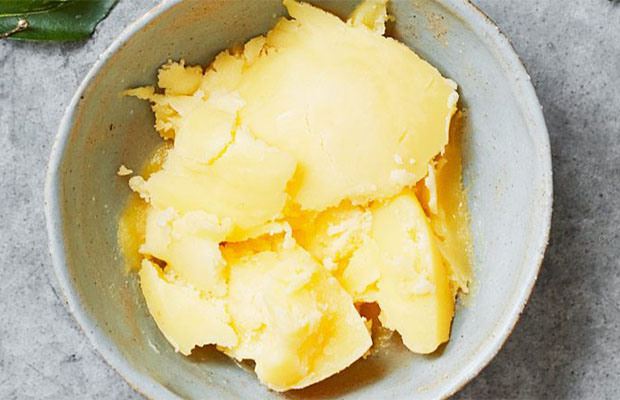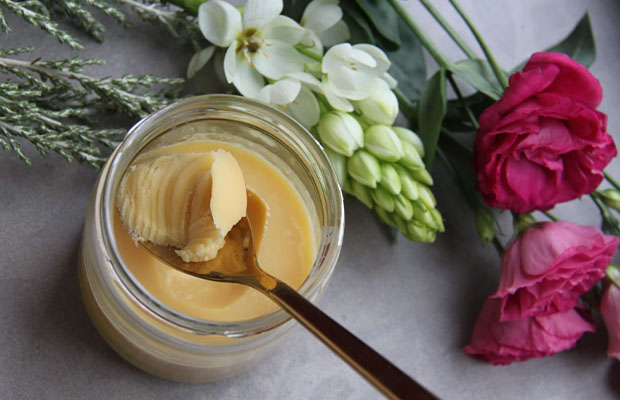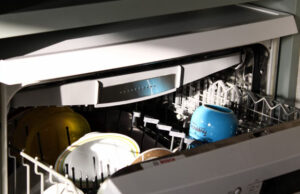As you are aware, there are a ton of ghee storage myths and misconceptions. Others argue in favor of keeping it in the refrigerator, while some argue that we shouldn’t.
You have a ghee jar in storage that is past its expiration date, and you’re not sure if you can still use it. Does ghee go bad?
So, does ghee need to be refrigerated? No, not necessary. Ghee can be kept at room temperature, and many manufacturers advise keeping it in the pantry.
For more information on storing ghee, keep reading.
Table of Contents
What Is Ghee?
Clarified butter is all that ghee is. Frequently, butter that has been simmered to obtain it is 100% fat. Although it originated in India, it is now widely used in many other South Asian and Middle Eastern nations.
It typically has a yellow-golden hue, though you might also come across it in various white colorations. Additionally, it is very important to various Indian cultures.
And Indians mostly prefer Cow Ghee for consumption as well as other cultural activities.

Can Ghee Go Bad?
If you keep ghee at a relatively constant temperature, it won’t go bad for a few years. Yes, there is a date on the label, but it only tells you how long the manufacturer guarantees the best flavor. Ghee may continue to be of high quality for months after that time, which it usually does.
But this does not imply that ghee is eternal.
There are a few situations in which your ghee might no longer be suitable for cooking. Those are:
- Ghee is rancid. Ghee degrades when kept in unfavorable storage conditions or for an excessively long time, just like oils. Unlike the typical milky-sweet ghee, rancid ghee has a distinct odor, a sour flavor, and is frequently a stark white color.
- It smells off. There could be something else going on or it could be rancid. Avoid using anything if it fails the sniff test.
- Any other stains or mold growth can be seen on the surface. If the jar isn’t properly sealed, that frequently occurs. Throw out that ghee.
- The quality is no longer satisfactory. The flavor and aroma of your ghee might have changed if it has been sitting for a few years. You might then choose to throw it away in the interest of quality.
It’s not necessary to immediately discard used ghee. It can be used as a skin moisturizer, hair oil, or eye makeup remover.
In case you’re curious, ghee doesn’t spoil easily because it has very little moisture and doesn’t contain any milk solids like butter or pretty much any other dairy product.
Does Ghee Need To Be Refrigerated?
No, you don’t need to keep pure ghee in a fridge. Ghee has a longer shelf life and is shelf-stable.
Although ghee is a milk-based product, it is less perishable than other common dairy products. Many people wonder if ghee needs to be kept in a refrigerator because milk products are typically perishable. Clarified butter, which is made entirely of the milk’s boiled oil and fat, is created when dairy butter undergoes the slow cooking process used to make ghee, which removes moisture and milk proteins. Ghee functions as a dairy oil that is shelf-stable because of its oily fat content. If you’re wondering whether you should keep ghee in the refrigerator, the answer is no.
Related Reading:
Can You Freeze Ghee?
If you have a surplus of ghee and won’t be using it soon, freezing works great (contemplate: in a couple of years). Here’s how to do it:
- Pick a container to freeze the fat in. You must transfer your ghee first if it is in a glass container that is not designated as safe for freezing. Choose a freezer bag or an airtight plastic container.
- If you only occasionally use ghee, divide your entire supply into several portions. Each serving should provide enough ghee to last for about a month.
- If desired, give the box or bags a name and a label.
- All of it should be placed in the freezer.
That’s it. As you can see, freezing ghee doesn’t require any extra steps, and you can do it in no time. The fat should be refrozen the previous night.
How Long Can Ghee Last?
Ghee maintains quality for at least as long as the best-by date on the label, which is typically one to two years of jarring. It retains its quality for months after that date if you take good care of it. Use the contents of the jar within six months of first opening it for the best quality.
A best-by or use-by date is printed on each ghee container. You can find out how long the fat will be at its best on that date. After that date, ghee won’t suddenly start to spoil. So, you may continue to use it after the labeled expiration date.
Generally speaking, the quality of the fat will gradually deteriorate. That means you can use it for months after the best-by date if it’s still safe to eat (check the section on ghee going bad).
The fridge is a better long-term storage option than the pantry, as I already mentioned. Ghee kept in the freezer will always be secure, though it might gradually lose quality over time.
Different manufacturers have various recommendations for open ghee.
Some brands advise using ghee within three months of opening ([SG]), while others advise sticking with the label’s expiration date regardless of when the container was first opened. If you store ghee in the refrigerator, I feel like it’s a pretty safe bet to use it within six months of opening.
How Should Refrigerated Ghee Be Used?
Using refrigerated or non-refrigerated Ghee has little to no difference.
The only distinction, in this case, is consistency.
The refrigerated food can sometimes change into a solid state.
Additionally, if you kept it in the freezer, it will undoubtedly become even harder.
In order to melt the frozen Ghee, you must take a few additional steps.
You can examine the conventional stovetop method to carry out the melting process.
How To Avoid Ghee From Turning Bad?
Here’s a list of things you should avoid if you want to keep your Ghee fresh for a long time –
1. Store It In An Airtight Container
That’s correct!
If you made it yourself, only keep it in an airtight jar.
Additionally, attempt to keep it in a glass jar.
It is protected from moisture and dangerous bacteria with the aid of an airtight jar.
2. Don’t Place It Near Heat Or Steam
As I mentioned in the previous point, too much moisture can ruin your ghee.
So be sure not to place it anywhere near heat or steam if you want to prevent it from happening.
Additionally, you might think about keeping it in the refrigerator if you are unable to avoid humid weather.
It will last even longer this way and be completely fresh.
3. Don’t Place The Jar Near Sunlight
It shouldn’t be kept in direct sunlight.
Additionally, keep it away from the area where your ghee jar will be directly exposed to sunlight.
The sun’s rays heat the vacuum space inside the jar when they enter.
Additionally, this excessive heat produces extraneous moisture, which is bad news for ghee.
The clarified butter is easily ruined by too much moisture.
4. Don’t Use A Wet Spoon To Take It Out From The Jar
The spoon must be entirely dry.
Every time you want to remove Ghee from the jar, make sure the spoon is dry and clean.
The spoon’s surface shouldn’t have any mud or moisture on it.
Use a kitchen towel to wipe the spoon clean if you notice anything like that on it.
A spoon that is used for other kitchen tasks should also not be used.
If it comes into contact with outside materials, it will undoubtedly spoil quickly.
Ghee is one of those kitchen ingredients that does not get along well with other foods.
Therefore, when using the spoon, be sure to heed this advice.
5. Use It Whenever You Can
Despite having a reasonably long shelf life, you shouldn’t wait until it spoils.
Use it frequently as a result.
It’s just another perishable ingredient for cooking, after all.
It will eventually spoil if you don’t use it.
Additionally, you will have to discard it, which is against your better judgment given how priceless Ghee is.
Okay, I sincerely hope you take heed of this advice.
Let’s now look at some domestic uses for chilled ghee.
Take Away
You’ll notice a color change when ghee degrades. A strong smell will also be coming from it, which is an even more obvious sign that it has changed for the worse or not.
Only as a guide to how long the fat should maintain its best quality, does the date on the label provides a date range. Ghee keeps for months after that date if it is properly stored.
Read More: How Do You Get Rid Of Gnats In The Kitchen?


